
21 minute read
Evolution of the Arts at Proctor
Dr. Stephen Alli ’09
lessons in Mindset and adaptation
Advertisement
For most Proctor students, a singular program or focus initiates their interest in attending the school. For Stephen Alli ‘09, this initial attracting force was the sport of basketball, but as is the case for nearly all Proctor alumni, the relationships developed and experiences encountered during his time at Proctor expanded his identity well beyond the basketball court.
A Toronto, Canada native, Stephen arrived at Proctor in September 2008 eager to take advantage of Proctor’s breadth of academic courses while playing football and basketball. Then head boys basketball coach Gregor Makechnie ‘90 helped guide Stephen and his family to Proctor, and the support he found through his coaches (Gregor and Scott Allenby in basketball and Ben Rulli and Chuck Reid on the football team) was mirrored by his classroom teachers and dorm parents. “Dave Fleming as my dorm parent, Brenda Godwin as a huge support and amazing person, Mike Koenig in College Counseling, so many people embraced me, challenged me, and helped me understand and feel at home at Proctor.” He adds, “Perhaps the teacher who had the biggest impact on my development was Chris Rogers ’95. I don’t think Chris (or I) realized at the time the impact he was having on me, but I came into Proctor hating math, and to this day I still do. Chris gave me the confidence to approach math. As someone with dyslexia, ADHD, and dyscalculia, math was my kryptonite, but there were so many times Chris offered to give his time for extra help, making it so much easier for me. I would not have majored in Biology and Psychology without having the confidence Chris helped give me in trusting myself as a learner. I eventually ended up earning my Ph.D. and teaching statistics at the college level, something I never would have imagined earlier in my academic career.”
While his original plan was to spend two years at Proctor, the football recruitment process shifted Stephen’s plans just before his senior year. The first in a series of experiences that would accelerate Stephen’s appreciation for adaptability, the University of Florida encouraged Stephen to enroll a year early to play football. His year at Proctor gave him confidence in the transition, “I was raised as an independent person, who was resourceful, and yet Proctor helped provide me the support system and relationships to learn how to interact with adults, to advocate for myself, and to live on my own.” He adds, “The biggest thing I learned was how to adapt. You are at this critical stage in your life where you are crystalizing your identity, and have the opportunity to experience new things, but you have to seek them out and have the confidence to embrace the challenges before you. I was the youngest person in my cohort in my Ph.D. program. I was the only Black man in my cohort. I was the only athlete in my cohort. But my prior experiences and exposure to different cultures and situations provided me with the background to know how to handle these situations.”
Throughout his time at Florida earning an undergraduate degree in Psychology, a Master’s in Mental Health Counseling, Master’s in Education, and Master’s of Business Management, as well as his Ph.D. in Counseling, Stephen would time and again need to adapt to unexpected challenges. “When I graduated from Proctor, I was planning to play football and basketball in college, and to study pre-med. But I never played on the basketball team, I broke both my legs and sustained multiple season ending injuries during my football career, and eventually had my athletic career end prematurely. I had to work hard to come to grips that my worth was not directly correlated to my athletic statistics. So many athletes - and this is what I work to help them with professionally - attach their worth to what they do on the field, to their statistics and highlights. Florida, and Proctor before that, gave me the opportunity to learn to adapt, to learn new skills, and to get outside of my comfort zone so that my worth extended beyond the field as I saw myself as more than just an athlete, but as a community member.”
It was this first hand experience of identity expansion that served as the basis for Stephen’s dissertation work in his Ph.D. in Counseling program, “When I came to the realization I was not going to play professionally, my academic counselors were critical in helping me develop a post-football plan. At the time there were not enough structured systems for helping collegiate
“My parents were from different cultures, I had traveled the world as a kid, but when I arrived at Proctor, I found myself surrounded by a group of people unlike any I had ever encountered. I learned to ask questions, to get to know people for who they were, to appreciate our differences, and this experience helped me adapt to new situations I have encountered in college and in the professional world.”
athletes transition out of college into the professional world, and I worked to develop research and wrote my dissertation on how to better support collegiate athletes as they transition to life after their sport.” Stephen’s research and clinical focus in his Ph.D. program eventually led him to a clinical internship with the NFL Player’s Association and brief stint at Clemson University in Student Athlete Development before being hired by the Philadelphia 76ers as a Mental Performance and Player Development Manager. After three years in the NBA, Stephen moved to California to serve as the Sacramento Football Club’s Director of Operations and Cognitive Development.
Stephen reflects on his own journey in relation to his work with athletes, “I believe in planned happenstance where we can plan for the best thing to happen, and put ourselves in a position to walk through the door when it opens. I have tried to live with this mindset myself and help my athletes embrace it in their work, as well. Your mindset and attitude of how you approach things in life can play a significant role in dictating the outcome of a situation. If you approach a situation with the confidence that you can do it, that you belong, that you can make a difference, it is a force multiplier in the success you can find.”
David Bamforth ’15 & Ethan Butterworth ’15
ManuFaCturing liFelong ConneCtions
For Ethan Butterworth ’15 and David Bamforth ’15, a friendship formed at Proctor has led to a shared passion for manufacturing and a career working alongside each other at David’s company, Rennscot. Read about their journey to, through, and from Proctor into the world of manufacturing.
How did you and your family find Proctor?
Ethan: I first heard of Proctor at a secondary school fair and was attracted to the truly great programs and unique campus, as well as the Learning Skills Department as a way for me to build study skills and independence. When we asked the secondary school counselor at my middle school about Proctor, they said it was a great school but that I had no chance of getting in, so we applied anyway to spite them! In the end, I was accepted and the rest is history.
David: My family and I found Proctor thanks to Steve Wilkins (former Proctor and Carroll Head of School). With Proctor being a boarding school, it was definitely out of my comfort zone at the time, but after just a few weeks I knew it was the right place for me. I have Dyslexia and had amazing support from the Carroll School as I worked to overcome my reading and writing challenges. Proctor did an amazing job continuing the support I had at Carroll and helping me gain the skills to become a more independent learner.
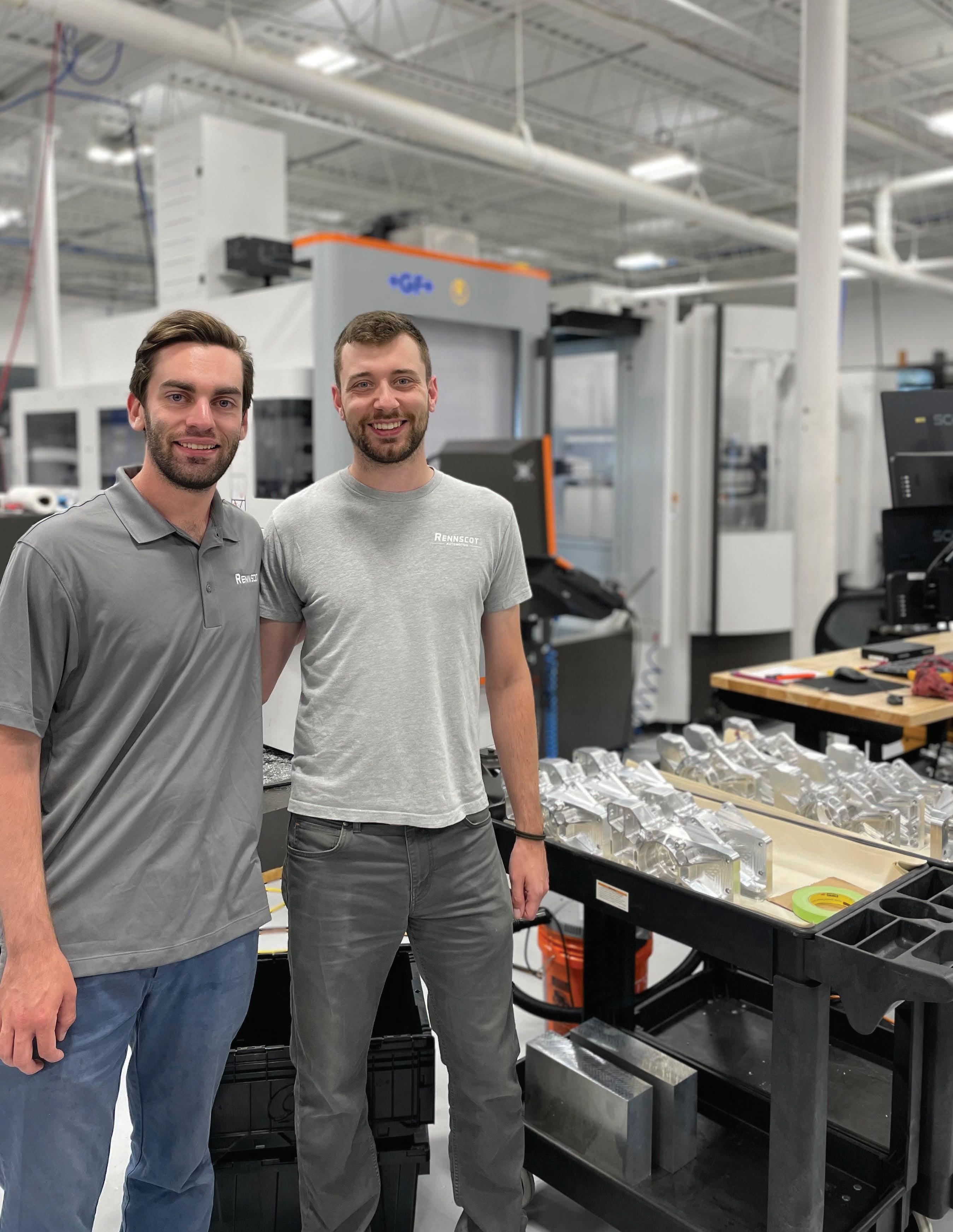
When reflecting on the people and programs that shaped you, what and who were critical pieces of your Proctor experience?
Ethan: The two biggest impacts on my development were Learning Skills with Lori Patriacca ‘01 and Ocean Classroom. Lori spent so much time helping me develop good study and time management skills, both for in class work and keeping goals and hobbies in my own time organized. I would not have been able to get through college and my professional work without those foundational skills. In a different way, Ocean Classroom helped me get out of my shell. I was able to learn to communicate and work together with a diverse group of peers, and the responsibility given to us at different points in the voyage gave me the confidence to be able to take more risks when we got back, knowing that I could do more than I initially thought.
David: Like Ethan, the first person that comes to mind is my Learning Specialist Linda Sargent. She was truly amazing. Over the course of my four years at Proctor, she not only helped and supported me academically, but also helped with my transition away from home. Josh Norris ‘92, Chris Rogers ‘95, and Gordon Bassett ‘96 were probably the most influential people in helping me discover that engineering and manufacturing was what I wanted to study in college. I was so fortunate to have exposure to engineering in high school and to go into the college process already knowing that I wanted to major in Mechanical Engineering.
What has your path looked like since graduating from Proctor?
Ethan: After Proctor both David and I went to Wentworth Institute of Technology where we both studied Mechanical Engineering. In fact, we were roommates for the whole time there. In the manufacturing minor, I realized it was an industry I had a real interest in because I tend to learn better in a hands-on situation. I am able to see and feel what I am working on rather than designing intangible goods. While in school, David started Rennscot, and after graduation I joined him and another one of our classmates.
David: As Ethan noted, we both attended Wentworth to study Mechanical Engineering with a Minor in Manufacturing after Proctor. Throughout my degree I continued to recognize how well Proctor prepared me for college. During my junior year at WIT, I began my business, Rennscot, as an opportunity for me to advance my understanding of manufacturing and to combine my passion for cars and making things. That summer I bought a used Haas CNC machine, set it up in a small industrial unit near school and began designing and making parts. Wentworth has a really strong co-op program, so for my senior fall co-op I petitioned, and was allowed, to be the first student to have an Entrepreneurship Co-op, a program that is still running and now has up to five students participate each term. During that term I began to form the vision of what my company would become.
Tell us a little about your current work with Rennscot?
Ethan: Currently I am the Lead Manufacturing Engineer and Environmental, Health, and Safety Manager. I started doing more 3D design focused work, but got more and more involved with the machining of metal parts. Now I program and run milling machines, making mostly parts for the automotive industry. I also manage the health and safety programs, an industry I had no training in, but have learned is far more in-depth than just wearing safety goggles. It is great to be able to make sure my colleagues are safe and able to do their best work.
David: I continued to work on Rennscot through my senior year of college and actually hired my first two employees about two months before I graduated. Rennscot has since grown and matured into a design and manufacturing company with ten employees, serving the automotive, electronics and soon the aerospace and medical industries. We are building a new facility that will have a dedicated space for precision CNC machining, metal 3D printing, and office space for operations and engineering. This new building will really allow the company to continue to grow at a rapid pace, while offering new services and better quality parts to our customers. I’m proud of the work environment we have created for our team. Historically, manufacturing has been a dirty dark industry with a pretty poor work environment, but this new building will be a radical change from the norm. To support this theme of employee quality of life we are also investing heavily in automation, so machines can run throughout the night and weekends without the need of a second or third shift.
What advice would you give to current Proctor students about their time at Proctor and how to best prepare for life in the “real world”?
Ethan: My advice is simple: take full advantage of the off campus programs! I made friends on Ocean Classroom that I would not have otherwise and was prepared for the “real world” by having learned how to live with other people and handle so many varied situations and different types of people.
David: My advice is to use your time at Proctor to focus on learning what you want to do as a potential career in the future. Try classes you have an interest in, and even some you don’t. If you use your time in high school, instead of in college, to explore your passions, you will be far more effective in choosing your post-Proctor path, whether that be in college or the work force. Additionally, surround yourself with friends that have similar interests that aren’t just sports. All four of my closest friends at Proctor: Ethan ‘15, Ben (Spooner) ‘15, Stuart (Hull) ‘16, and Nathaniel (Herring) ‘14 loved learning how things worked and how to make things. This shared interest really helped excite and fuel each other’s interest in engineering and in part because of this we all went on to earn degrees in Mechanical Engineering!
The Lasting Legacy of David Fowler
(1935-2022)
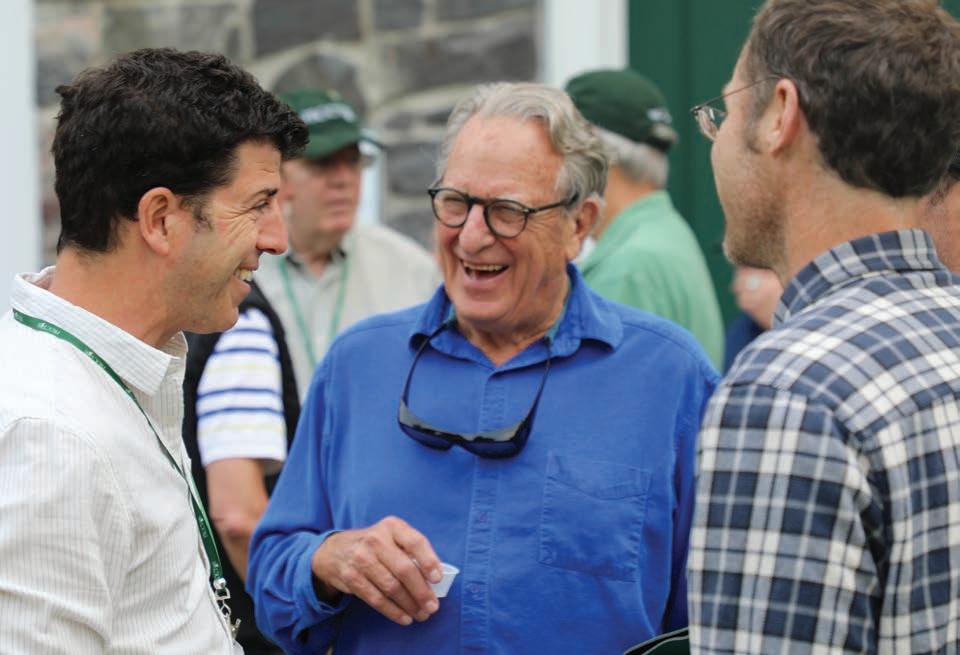

Reflections on David’s Leadership
Brian Thomas
Head of School 2021-Present
Mike Henriques
Head of School 2005-2021
In my office, David Fowler’s picture hangs next to my window alongside Proctor
Academy’s inaugural Girls’ Hockey Team.
The young women are all smiles because of their historic accomplishment. David smiles, too, with a wide open-grin, hands crossed in repose, wearing warm gloves and a two-toned hat in the photograph. In my head, I can still hear our conversation echoing in my head after I had accepted the position to be Proctor’s Head of
School. Me: “What was it that made your tenure at Proctor so successful?” David: “I just facilitated. Nothing more.” If everyone else “had the good ideas,” as David put it, then David was the uber-mind that created the pathways by which those courageous ideas became possible, effective, impactful, and enduring over time–like David Fowler himself.
50

David represents a turning point for Proctor, injecting a boldness into the school’s DNA that has always encouraged the community to pursue what is best for students and to shun the conventions of the time if they are not. That boldness has not left the school. He deepened Proctor’s commitment to the experiential while also staying true to supporting students with a variety of learning profiles. Did I know him well? Not the way those who worked for him or who were students during his tenure. Did I feel his presence? Every single day. And I tried to live up to, as we all must, the legacy he left behind. Not an easy task, but absolutely critical for the success of the school and its students. Steve Wilkins
Head of School 1995-2005
Here’s one truly remarkable feature of David Fowler’s legacy: Twenty seven Proctor commencement ceremonies have been celebrated since David stepped down as Head of School. Although most never met him, everyone of the students who graduated after David’s tenure benefited profoundly from his vision of a school that gave voice to its students and its faculty. The same impact will endure for all Proctor students for the foreseeable future. By redefining culture and programs of a northern New England boarding school, the faculty and David built an environment in which diversity is prized, difference is respected, and the status quo expects to be challenged. They built a school that dares to be complex and surprising: college preparatory and experiential, rigorous academically and supportive, informal and structured. No one, absolutely no one, has had a greater impact on more Proctor students than David Fowler. Each of our lives are shaped by individuals who take the time to appreciate our individuality, to ask questions, to challenge us to dream, and, in turn, push us to become better versions of ourselves. Institutions are no different. It is with great sadness that we share the passing of former Head of School David Fowler, a leader who transformed Proctor during his 25 years as Head of School and inspired generations of educators and students with his vision for what high school could be.
David arrived at Proctor in the fall of 1964 with his wife, Alice, and young family. A Marine and graduate of Colby College where he co-captained the football team, at Proctor David taught history, coached football, hockey, and lacrosse, and served as a dorm parent before being named Head of School in 1970. Recognizing a need for Proctor to evolve - the traditional all-boys boarding school model of the 1950s and 1960s was no longer thriving - David, alongside dedicated faculty, staff, and administrators, made radical changes to Proctor’s educational model. Inspired by the Outward Bound approach to relationship building and connection, Proctor adopted a firstname basis, a Wilderness Orientation program, committed to small dormitory communities, re-introduced a co-educational model, elevated the Learning Skills model through Alice’s leadership, and designed and built novel off-campus programs like Mountain Classroom, Proctor en Segovia, and Proctor in France that immersed students in small-group experiences around the world. David had the vision for these programs, but they came to fruition Leaders like David not only transform schools, but the people who make them. Perhaps David’s greatest legacy as a leader was giving voice to those whose voices were traditionally minimized in school communities: students, staff, and teachers. His ability to facilitate conversations, to upend and question the status quo, to dream about a school community designed by those in the proverbial trenches, attracted and inspired educators to live their lives fully alongside their students. David believed deeply that when adults in the community felt ownership over their work and were connected, fed, and energized by their colleagues, students would thrive.
Having a vision for a school community and emboldening that same community to pursue the vision on an organic level are two very different challenges for a leader. David masterfully did both as Head of School. He did not shape Proctor’s mission after himself, but after what was best for students. If you worked with David, you felt it. If you were taught by teachers under David’s leadership, you felt it. If you work at Proctor today, you still feel it. This is the power of strong, visionary leadership. It inspires stewardship of a school culture that transcends the leader’s time at the institution.
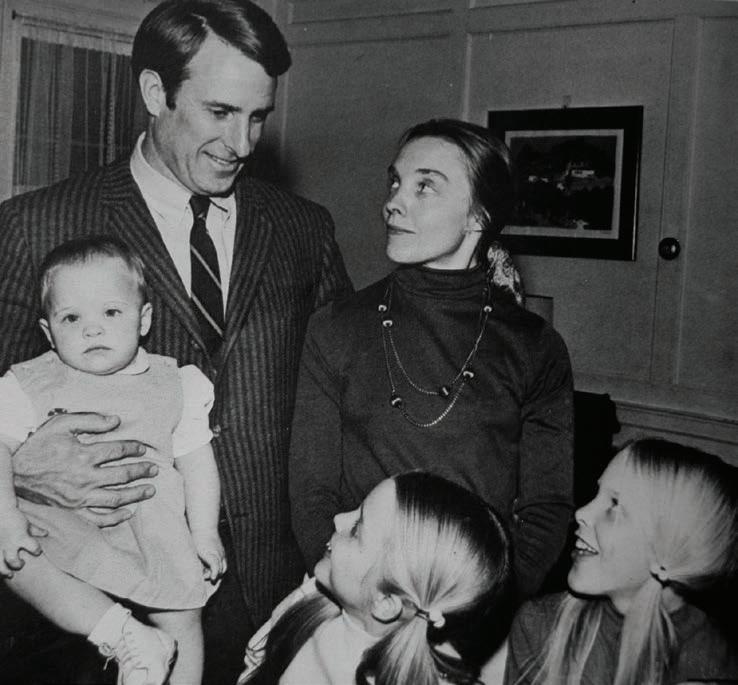
Nance Barrett
Administrative Assistant to Head of School 1971-2003
I had the privilege and honor to work with David as his assistant for 24 years. David’s words to me at the very beginning were “I’m not your boss, we are a team that works together.” We were a team that never had a disagreement in those 24 years. He often said we worked so well together as we both were Aquarians. David’s leadership as Head of School transformed Proctor into the school it is today, and it was his kindness, thoughtfulness, ability as a listener, way he respected students, faculty and staff that made him that leader. He was my friend as well as my “boss.”
Chris Norris
Assistant Head of School 1966-2002
It was not an easy transition when, in the early 70’s, David first became Head of School. The country was immersed in the Vietnam morass. And private schools were hurting for admissions and struggling to find purpose. But under David’s leadership, Proctor moved from being a floundering traditional boarding school to a school which defined itself through thoughtful informality, a strong sense of community, diversity, academic support, and most significantly, through experiential learning. He believed to his core that learning through doing, learning through engagement, learning through accomplishment, learning through taking on challenges, and learning through the acquisition of confidence was the most effective form of education for teenagers. By his side was Alice, a champion of the Learning Skills Department and perfect partner in leadership for David, someone who embodied trust, care, and love for all in the community.


Thank You DEPARTING FACULTY & STAFF
Lynn George, P’12
1988-2022 | Proctor Maintenance Department

Lynn was the recipient of the 2022 Green Lantern Yearbook dedication as the Class of 2022 honored her decades of service to Proctor. The class wrote, “The Class of 2022 dedicates the 2022 Green Lantern to Lynn George, Proctor Academy’s Assistant Director of Maintenance and Hazardous Waste. Since 1988, Lynn has been central to the operation of Proctor’s complex campus, helping maintain the school’s 52 buildings, 365 days a year. While often behind the scenes, Lynn’s influence on Proctor is felt by each of us daily: as we walk into buildings, play on our fields, ride buses to games, and sleep comfortably in our dorms. This school, and our lives as students at this school, can never take for granted the countless hours and years Lynn has committed to the Proctor community throughout her career here. We wish you the very best in your retirement.”


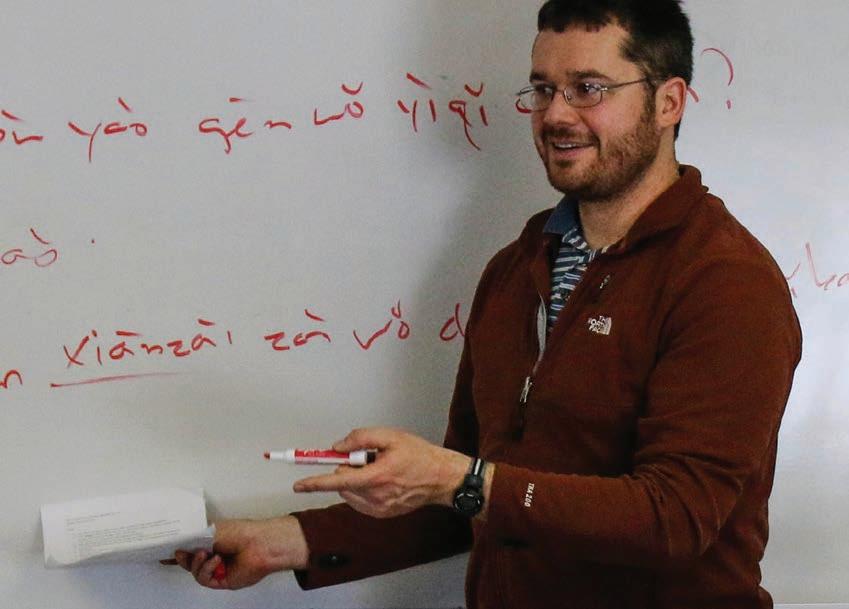

Faye Okma, P’04,’07 1999-2022 | Admissions Adam Jones 2008-2022 | Technology, Social Science Valerie Ferris, P’10 2009-2022 | Learning Skills

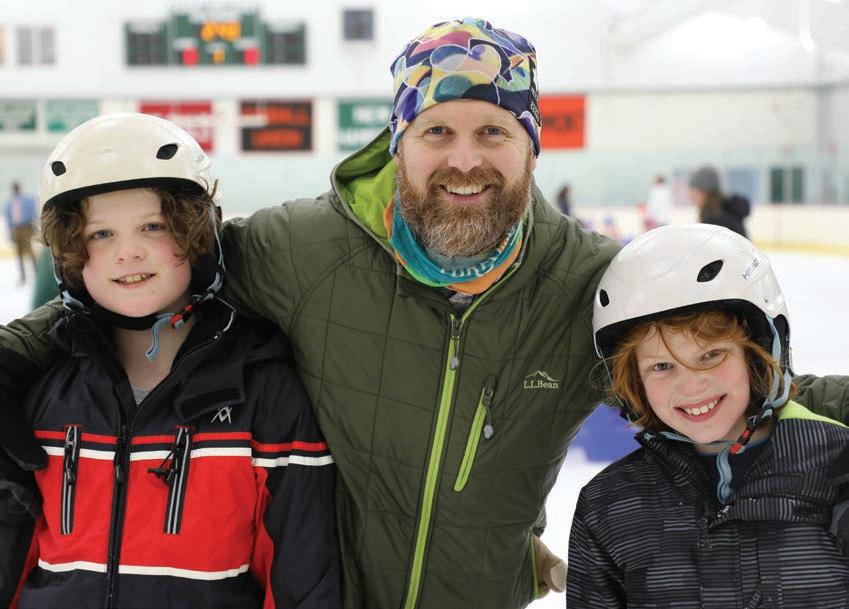




Jamie Ardine 2015-2022 | Dining Services Jim Hanson 2015-2022 | Maintenance Brenda Brown 2017-2022 | Housekeeping 2006-2022 | Arts Department Chair, Instrumental Music Director

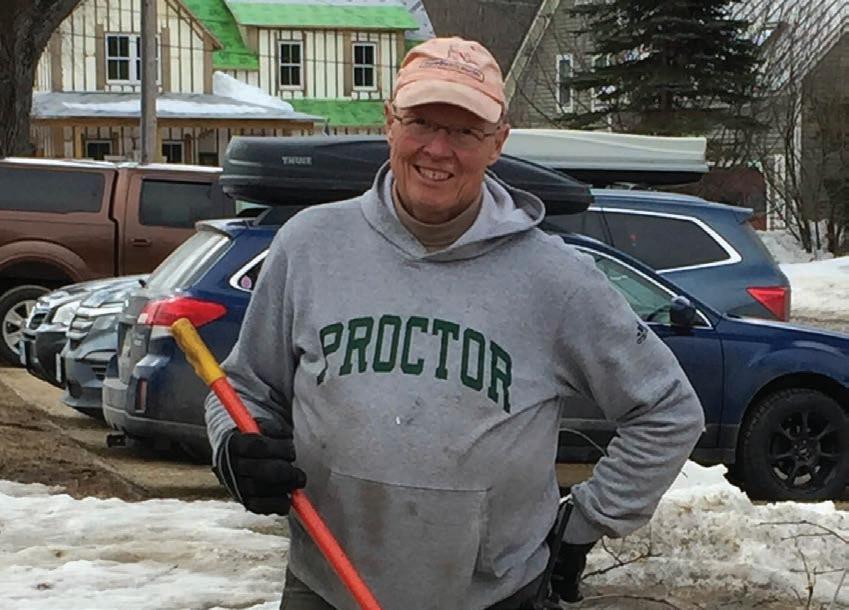
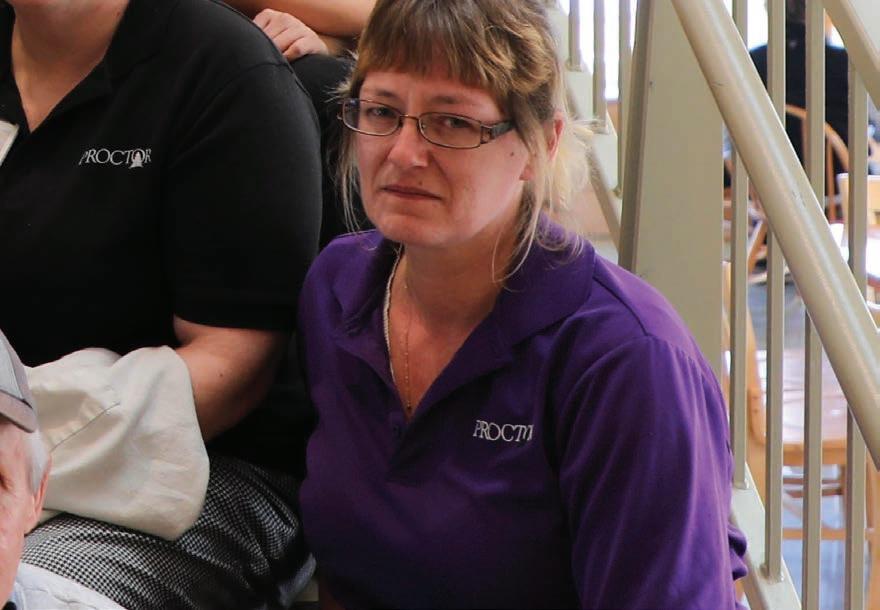
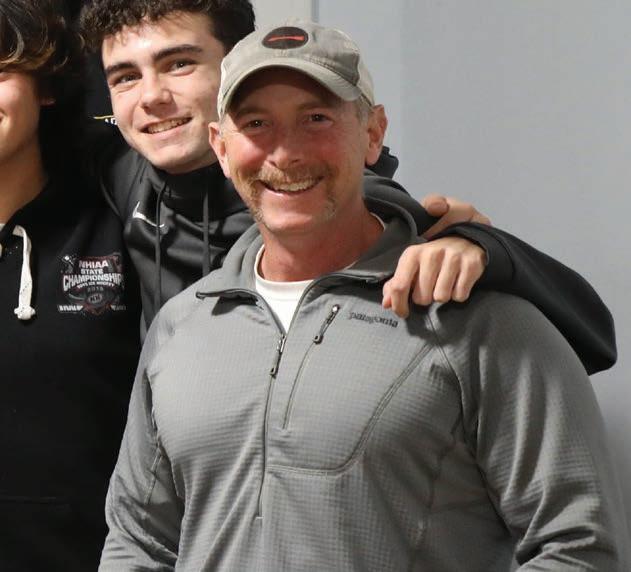


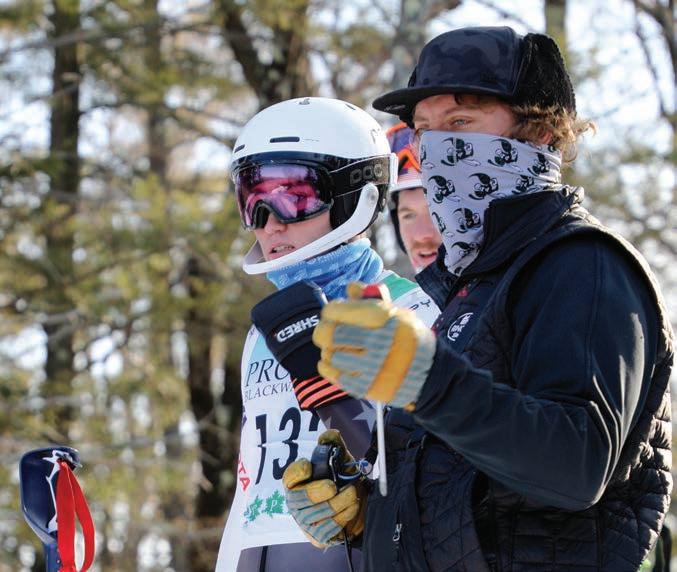
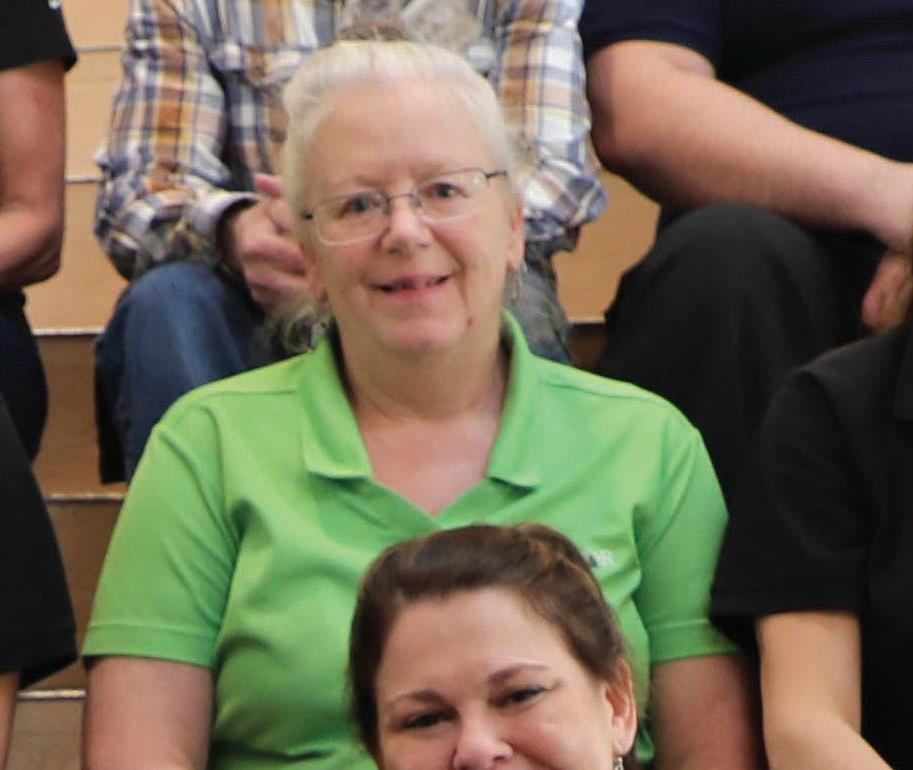

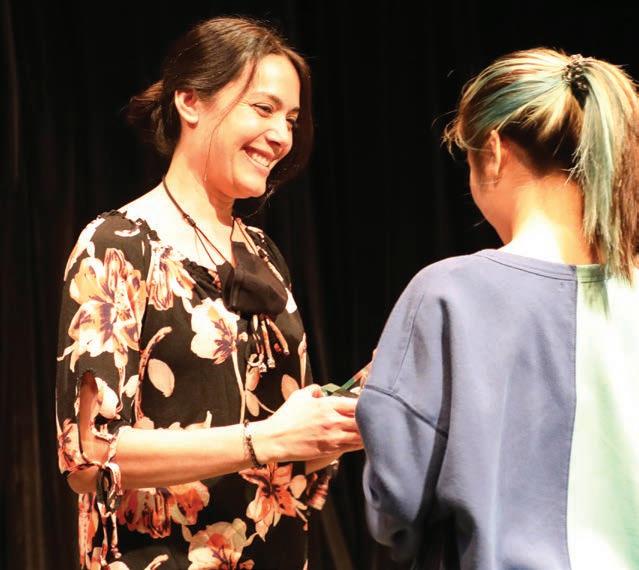
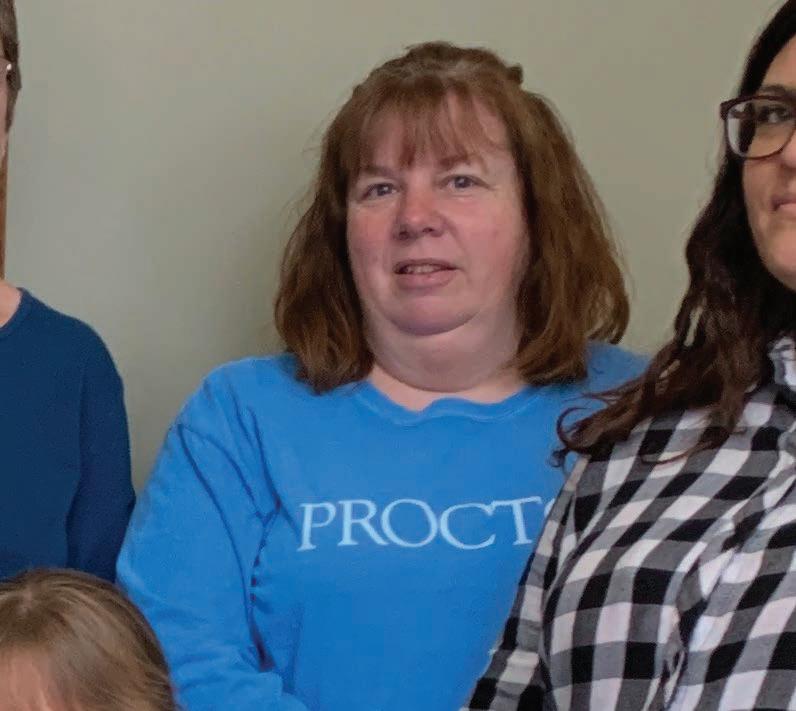
If Proctor had a soundtrack, it would be as unique as the programs and people that make up our community. If someone were able to actually put this community to music, Bill Wightman would be the one to find a melody that wholly fits us. For the past seventeen years, Bill served as Chair of the Arts Department and director of Proctor’s instrumental music program. Whether it was accompanying the Jazz/Rock Ensemble during performances, advocating for the arts during faculty meetings, supporting students in their individual artistic pursuits, or mastering the technology behind an audio production class in Proctor’s recording studio, Bill’s talent, passion, and commitment to the educational value of the arts in every single high schooler’s experience has empowered generations of Proctor students to find and pursue their passions. Thank you, Bill, for your dedication to Proctor and to our collective artistic pursuits over the past two decades. You will be missed!
Jon Beard 2011-2022 | World Language Angela Warn | 2014-2022 | Admin. Support Morgan Braley | 2017-2022| Admin. Support Amy Makechnie, P ’17, ’19, ’22, ’25 2014-2022 | Science
Brooke Haynes 2017-2022 | Social Science Dawn Allair 2018-2022 | Health Center Mike Fairbrother 2018-2022 | USS/FIS Skiing




